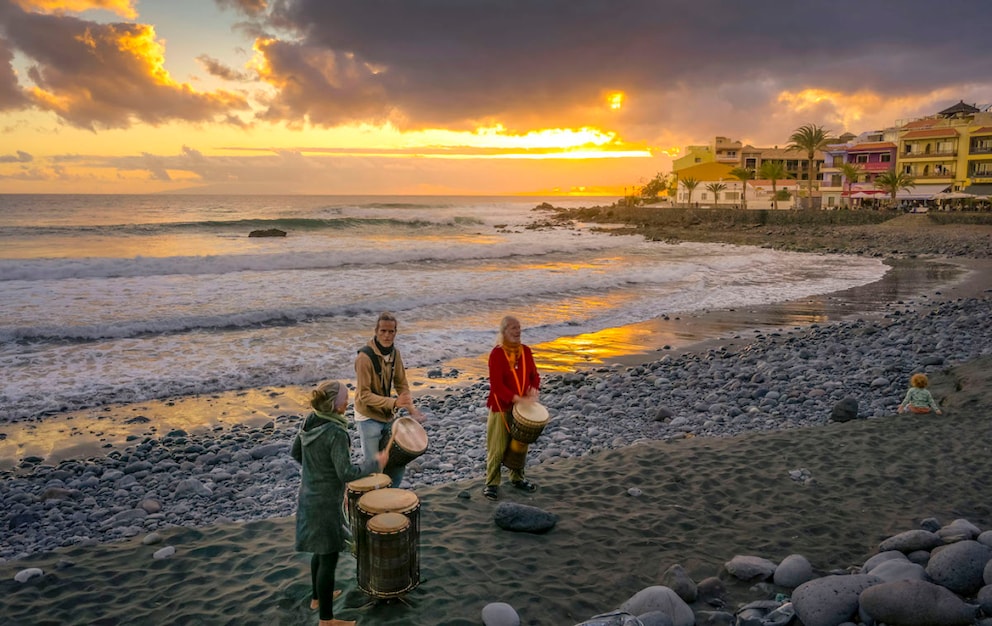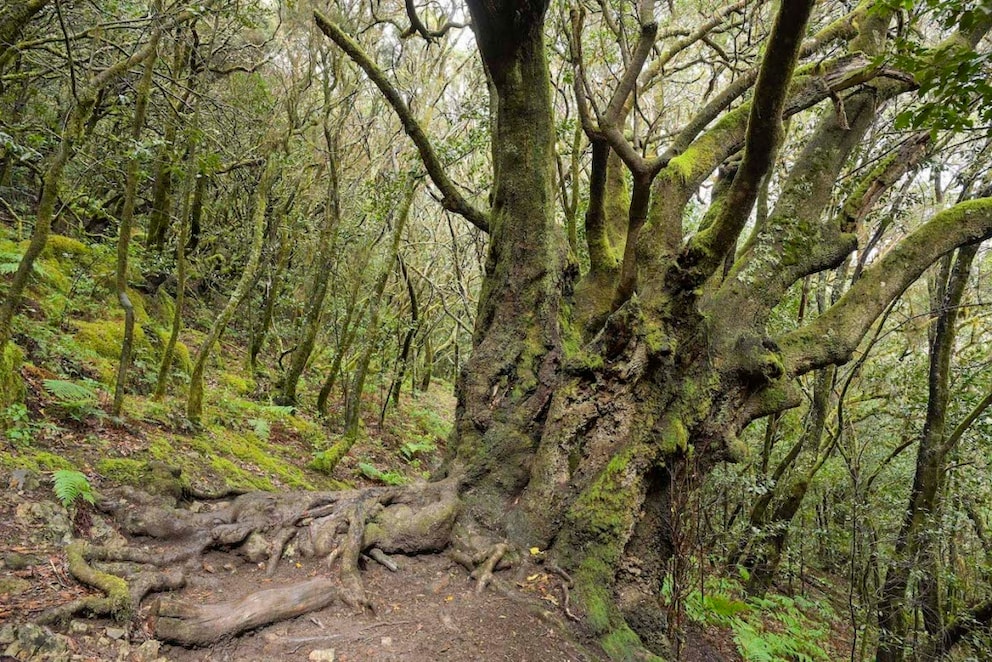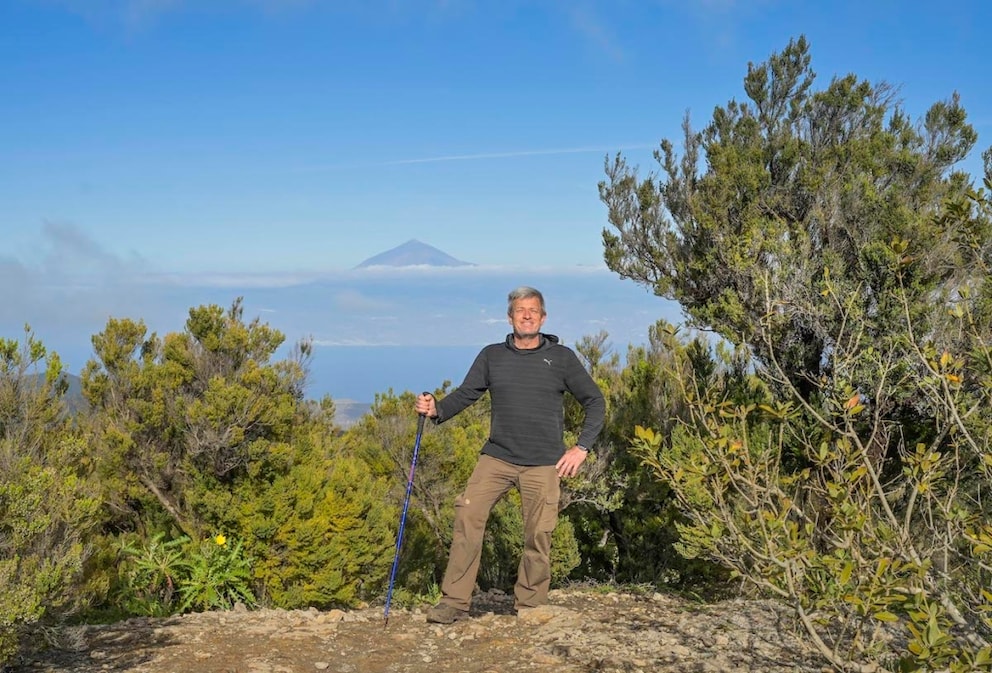April 29, 2025, 9:22 am | Read time: 5 minutes
The Canary Islands are renowned for their beautiful beaches, guaranteed sunshine, and unique natural landscapes. However, they are also a popular destination for many hikers. Whether it’s short walks or long-distance hikes, the islands offer a variety of ways to explore. TRAVELBOOK author Frank Lehmann donned his hiking boots on several of them and shares his top tips.
La Gomera is the third smallest of the Canary Islands, after El Hierro and La Graciosa. Only about 22,000 people live here, and life is noticeably more relaxed than on the larger sister islands. There are no sprawling hotel complexes like those on Tenerife or Gran Canaria. Plus, La Gomera offers perfect conditions for hiking.
Overview
In Valle Gran Rey
Like many Germans, we are drawn to the Valley of the Great King, Valle Gran Rey. Naturally, we first look for remnants of the much-vaunted hippie culture. And yes, in the evenings, bongo and conga drummers gather on the beach. Yes, there are many offers for yoga and self-discovery seminars. And the artist’s village, El Guro, exudes its charm. But the truly wild times are over. There are three-story hotel complexes on the beach, swimming pools, and many restaurants. Real estate agents no longer have charming fincas on the beach available. Higher up in the mountains, there are still some properties for sale, but not for less than 150,000 euros.

But we don’t want to settle down on La Gomera; we want to go hiking. So we first take a walk to the waterfall of El Guro. It takes us two hours to go on a round trip to Barranco de Arure—a small jungle and a little paradise. Be careful, some of the rocks are slippery!
Anyone who wants to explore La Gomera on foot must definitely head up to the solitary tree of La Merica, a wind-swept Phoenician juniper. You start down in La Calera in Valle Gran Rey and make your way up to the ridge. The view from there is breathtaking: the cliff drops 600 meters down to Playa del Inglés. The journey continues to the Mirador de El Santo and the sleepy mountain village of Arure. From there, we hike back down into the valley to El Guro. Along the way, a woman who actually lives in a cave and smiles at us blissfully. Well, good for her; we find our peace too, after 18 kilometers with steaming hiking boots and a cool beer.
Garajonay National Park
The next day, we head to Garajonay National Park. We start at the Aparcamiento de Cruce de Pajarito parking lot. Heavy clouds circle around the island’s highest point at 1,487 meters. But these clouds don’t rain; instead, they create a dense fog that drifts through the large laurel forests. There it is, the promised magical atmosphere. You can barely see 20 meters ahead, with dense lichen hanging from the moss-covered trees. The fog forest of La Gomera — simply impressive!
We walk down to El Cedro — be sure to order the watercress soup Potaje de berros at Restaurante La Vista. Refreshed, we head back up into Garajonay. The clouds clear, and we leave the primeval forest at the natural monument Los Roques. These are ancient, extinct volcanic vents that rise like menhirs from the mountains. Roque Agando is the most famous.

To the Mirador de Abrante Viewpoint
There are so many more hiking trails on La Gomera. We choose a very special one: the ascent from the village of Agulo in the east of the island up to the Mirador de Abrante viewpoint. You walk over a glass floor, with a cliff dropping 400 meters below (see large photo above). If you’re not free from vertigo, you shouldn’t attempt this. But don’t worry, you can’t fall here; you stand on the glass and feel like you’re floating. The view extends all the way to Tenerife, and Teide greets us from 60 kilometers away. The Juego de Bolas Visitor Center is highly recommended. It’s modern and informative, and you can enjoy and purchase local specialties there.
Vallehermoso is praised by some visitors as the most beautiful place on La Gomera. Sleepy, in some places also dilapidated, with a small plaza and, of course, bars where Gomerón is offered, a typical drink made from a mixture of honey or palm syrup and pomace brandy.


The Best Hiking Trails on La Palma

GR 221 – the most beautiful long-distance hiking trail on Mallorca

This Seaside Resort on Tenerife Is Still a Hidden Gem
Through the Barranco de Santiago O Guarimiar Gorge
Our last hike takes us into the deep Barranco de Santiago O Guarimiar Gorge. You start in the mountain village of Imada, and the path ends after a six-hour loop back there. In some places, you need to be careful, as the route runs along very steep slopes. But like all trails on La Gomera, this one is well-marked and secured.
Important: You should bring enough water and provisions, as there are no restaurants along the hiking trail. A hiking stick is helpful, and sturdy, good shoes are a must.

